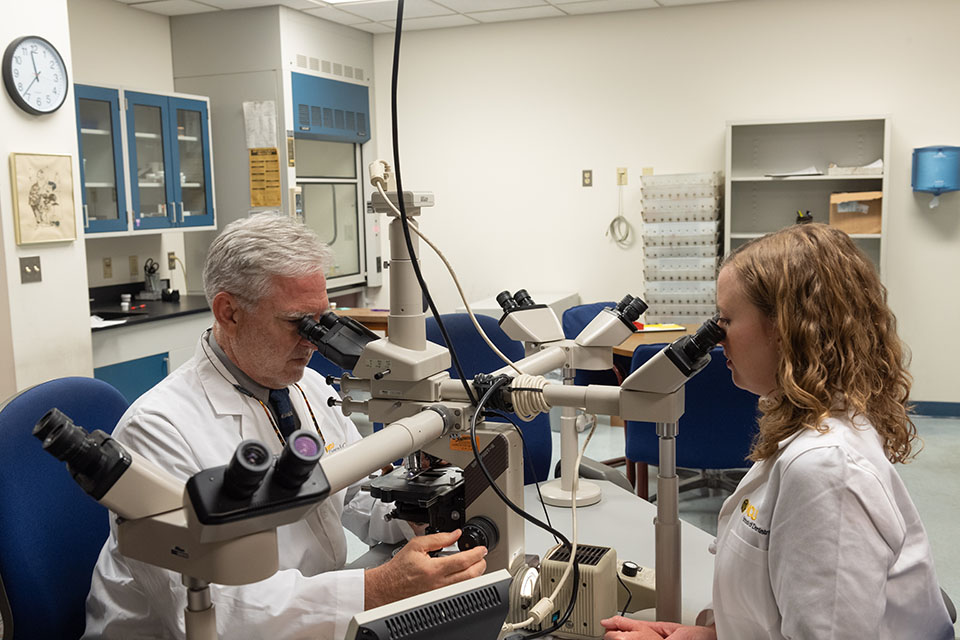“Brain Fog” in Oral Diagnostic Sciences – a COVID-19 update

by Duane Schafer, D.D.S., M.S., professor
The challenges this pandemic has confronted us with as individuals, as practice partners, and business entities have been unprecedented to say the least. We know first-hand that many offices of our alumni remained open throughout the early spring and summer while continuing to provide emergent and time-critical care to the extent permitted by local governments. Your efforts were not only appreciated, but the dedication you demonstrated to your patients was, and to this day is, truly commendable.
A dramatic shift
We, too, saw a dramatic shift in the way we tried to manage the daily oral pathology operations and were fortunate to have (with all but a few unanticipated disruptions) good laboratory support. With all clinical and didactic activity suspended at the School of Dentistry, the oral pathology department personnel were some of the few to be granted building access, albeit even then on a truncated schedule. The postal service and VCU mailroom also remained operational, however we noted a decidedly longer transport time for the biopsy specimens to make it from your offices to our intake desk. In response, we discovered some offices switched their mode of specimen delivery to FedEx® and that significantly shortened the diagnostic case turnaround time.
Essential services
The oral pathology team would soon come to realize just how extremely important a quicker diagnostic reporting time would become to you as the number of “rule out cancer” cases quickly replaced the more customary mucocele and fibromas. In fact, the incidence of malignant diagnoses nearly tripled during the months of April, May, and June, compared to equivalent three-month periods. When you factor in the recognition of dentistry as an essential service, offices heeding organized dentistry’s guidelines on safe practices, and the focus on delivering only the most urgent care, maybe this should not come as such a surprise.
Deleterious effects
Oral lesions have been associated with the COVID-19 virus, with the majority presenting as ulcerations or blisters resembling a recurrent herpetic outbreak or a blistering desquamative gingivitis, however the onset of new virus-related oral cancers has not reported. Of interest are several journal articles that discussed the potential deleterious effect the lockdowns and suspension of elective dental visits due to this global health crisis will have on the early detection of oral cancers.
Brain fog…did you forget something?
While oral cancer has not been associated with the COVID-19 infection, symptoms ranging from heart damage to brain fog are some of the lingering issues being reported. Brain fog maladies include lack of mental clarity, poor concentration, and inability to focus. We tongue and cheek (no pun intended) mentioned brain fog in this quarterly update as we have noted a recent uptick in submitted cases in which specimens have been received without patient data, no doctor information, and specimen containers being unlabeled. This can be an issue, resulting in a significant delay in processing the specimen, especially if the doctor’s office information is not included, as we don’t even know who to contact to find the missing information.

Missing pathology?
As of mid-August, we eliminated any case backlog caused by the pandemic and our lab is now processing six days a week. So if you have a patient that is still missing pathology results from March, June, or July, please reach out to us in case it is one of the cases we have with missing essential information and have been unable to process.
Categories Endodontics, Oral Diagnostic Sciences